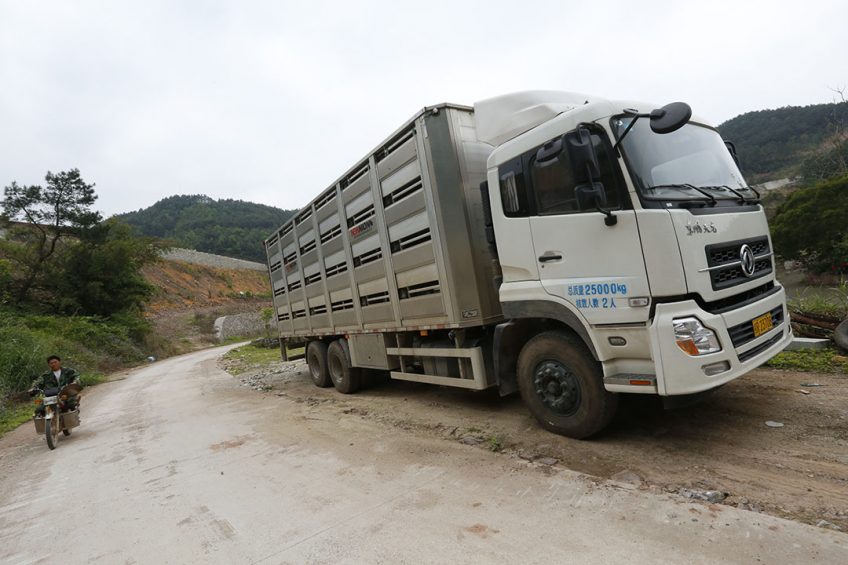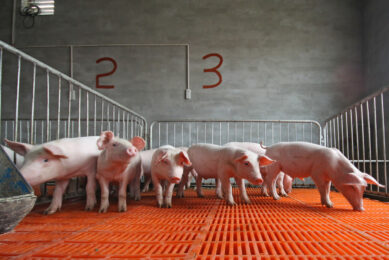ASF China: Pig herd falls 16.6% in February

China’s pig herd has decreased by 16.6% in February year-on-year, according to official figures. This is likely to be the 1st concrete Chinese data indicating the effect of African Swine Fever (ASF) on the country’s pig herd.
The data were shared by the Chinese Ministry of Agriculture and Rural Affairs (MARA), press agency Reuters reported. The number of sows even dropped 19.1% in February from the same month a year earlier, according to the data, which were collected from 400 counties across the nation. The pig herd shrunk 5.4% and the sow herd 5% in comparison to January.
To the World Organisation for Animal Health (OIE), China has so far reported 117 outbreaks of African Swine Fever in 28 provinces and regions since August 2018. In Asia, the virus has since spread to Mongolia and Vietnam as well – with spread to other countries being feared.
China makes big purchase of pork from USA
More proof emerged over the weekend that African Swine Fever is going to have a very serious impact on swine production in China. News agency Bloomberg reported that China has made the biggest purchase of pork in nearly 2 years. In the week ending March 7, the country bought 23,800 metric tonnes. According to the news agency, that was the largest sale since April 2017.
Bloomberg added that China has also started to buy pork domestically to increase its own reserves.
“ASF at 30-50% of farms in China”
Thoughts of a similar nature were shared by Dr Mark Lyons, Alltech CEO, who spoke last week at an audience in Dublin, Ireland. He said, “Several CEOs of large agricultural conglomerates told me at VIV Asia that they think that ASF has broken out at 30-50% of the Chinese pig farms. That would then mean 1 out of 5 pigs in the world. China will therefore start purchasing pork massively – that has already been starting in the last few weeks.”

Read more on African Swine Fever in our Pig Progress Health Tool
Dr Lyons continued to say that he is expecting a change in the perception of pork amongst consumers. He said, “It could go in two directions. China does not apply any transparency with regard to what is going on. Even in Western markets this could lead to a mistrust as to pork safety.
He continued to say, “On the other hand, however, as a result of strongly increasing prices and empty shelves, that could lead to appreciation for intensive agriculture, as this sector takes care of food safety, animal welfare and transparency about the initiatives to deal with environmental problems related to that production. It is not clear yet, but this ASF has all it takes to become a game changer for agriculture.”
Read more on the impact of ASF for China in the previous overview and in this Expert Opinion
Pork seizure in the United States
On the other side of the planet, US border agents have seized around 1 million pounds of pork (450,000 kg) from China, news agency Reuters revealed. Federal agents seized the supplies in New York. The pork is still being investigated for ASF presence.
At the biannual trade show VIV Asia, held in Bangkok, Thailand, 13-15 March, the ASF situation in Asia took main stage as well. At a very well-attended side congress, organised by Thai agricultural organisations, the virus was discussed by various speakers, Pig Progress editor Vincent ter Beek, gave an update of the situation worldwide. A PDF version of his entire presentation can be viewed here.











